
“Sometimes life tests you to see if you're strong enough to move on.” This is the main phrase that Juan Carlos Unzué has in his WhatsApp photo and it is the spiritual reflection of how he faces his life every day to continue fighting against Amyotrophic Lateral Sclerosis, ALS, a disease he was diagnosed with in July 2019 and which in his case has a life expectancy of less than five years. “What am I going to be afraid of? I was diagnosed as suffering from a neurodegenerative disease without cure, with a life expectancy of between three and five years. I have the feeling that I have looked in the face of death. And in short, that face-to-face helped me get a little more out of life”, reveals the former Barcelona goalkeeper.
At 54 years old, the native of Pamplona, Spain, aims to enjoy his family as long as possible and stay active with talks, conferences and interviews to raise awareness among patients who are going through this hard disease. “Everyone has the right to assume a diagnosis like this in the best or worst way. I try to encourage them and tell them that from my experience it is still worth living and enjoying. Some may need a month, others need more time and accept that ALS is part of our lives”, emphasizes the Spanish in a friendly tone.
Before becoming one of the 4,000 patients suffering from ALS in his country, Unzué dedicated his life to football, as a player first, as a coach later. He can boast of having shared costumes with the two best footballers in history. Because he played with Diego Maradona at Sevilla (1992/3), under the tutelage of Carlos Bilardo; and he led Lionel Messi at Barcelona, being Luis Enrique's field assistant and goalkeeper coach in the coaching staff of Frank Rijkaard and Pep Guardiola.
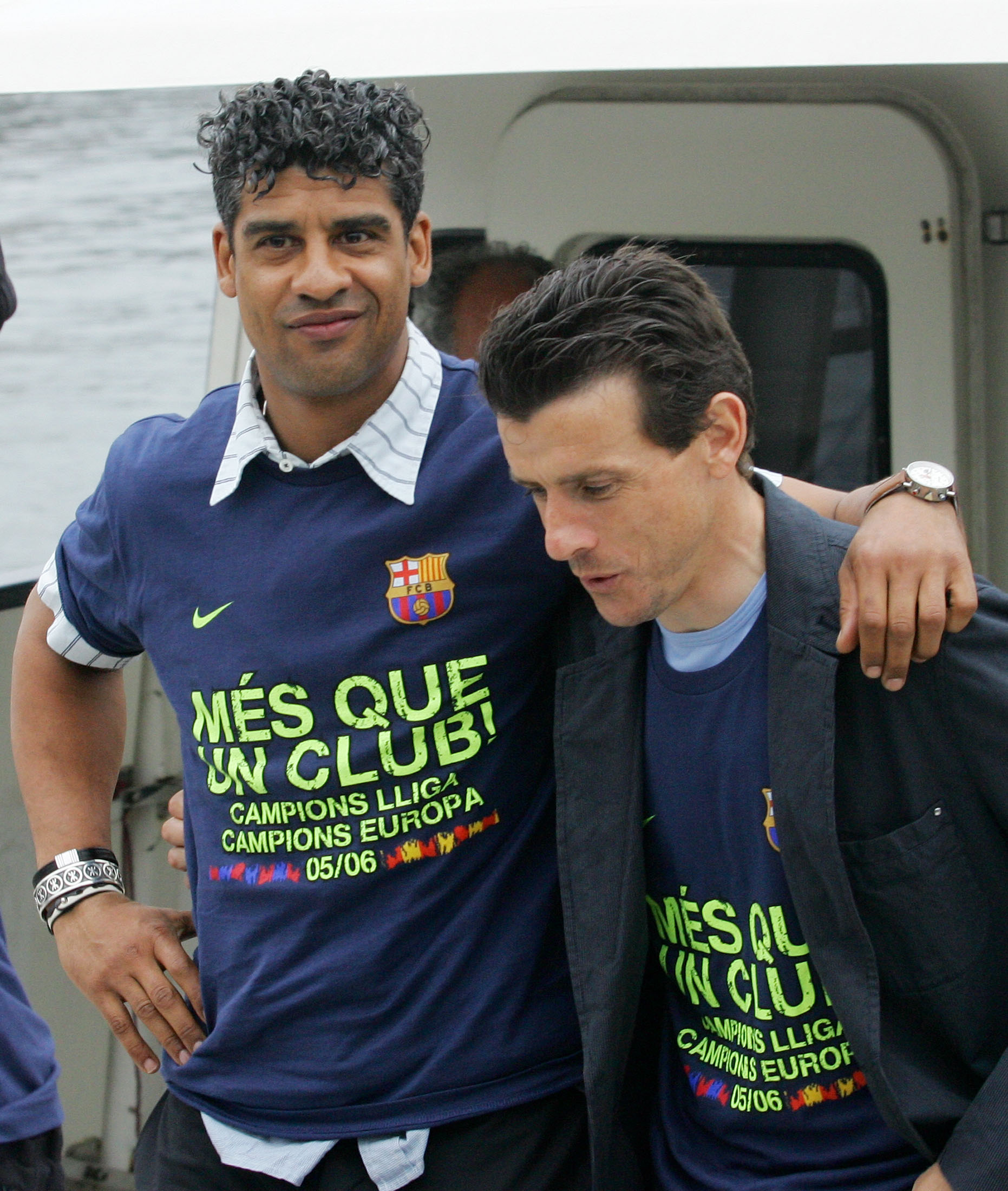
“The teammates who have been by their side for a long time have been able to withstand the stress of playing with Messi. And it was difficult, because Leo has been very demanding of them, but much more so with himself. So, it wasn't easy to live up to her. In the end, football is a funnel and not everyone lives up to Lio. Some came to play by their side and were not able to consolidate, but there were others who succeeded. And we are living the best years in the history of the Barcelona club”, emphasized Unzué in a heads-up with Infobae.
In addition, the former guardavalla culé recalls about Maradona: “The feeling of privilege to coincide with the best player in the world in Seville, who was also our idol”. And he stays with the personal aspect of Pelusa: “He told us about his personal life, which entails being number one in the world, his experiences in great detail. His final phrase was: 'Let them know that I tell it because I am fond of them. I made a mistake and I don't want you to make it. '”
- How are you feeling about your illness?
-I'm still mentally strong and useful. I feel like I give meaning to my life in a very different way than most of the previous years I had found happiness in football. I feel like being here and alive is worth it.
-In July 2019, she was diagnosed with ALS. How has your life changed?
On a physical level it changed overnight. In the end, I've always been a very active person. Interestingly, my hands, arms and legs have given me the possibility of being a professional footballer, but today they prevent me from even walking autonomously. But you can enjoy essential things that do not require physical effort.
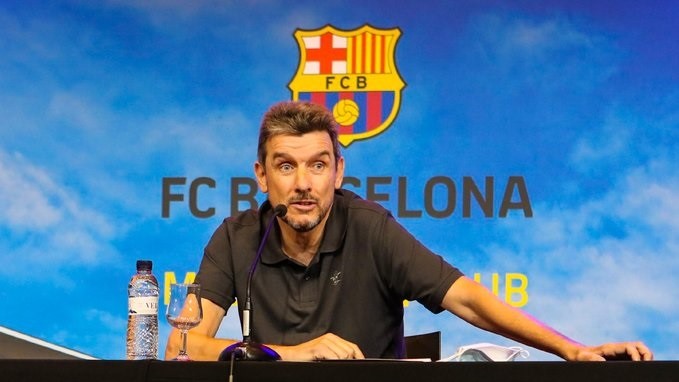
- Like what?
-Today my life goal is still to give visibility to ALS. Let us know the consequences that it has and, above all, show a little bit what situation other patients who are fighting with this disease are in. The idea is to show the harsh reality. From there, that gives meaning to my life and is my goal.
- What are these consequences of the disease itself?
-In my case, the physical limitation in my legs, arms and hands is very marked. I need help for essential things like showering and dressing. Meanwhile, to move I need a wheelchair.
- What is your day to day like?
-It depends. The last four months have been very intense. I wrote a book and Movistar released a documentary about me. In addition, I am giving talks in companies, universities, schools and interviews with different media. I stay active all the time. In the end, this disease generates a very great physical and mental fatigue. So, I look for a balance with everything I'm doing. The truth is that it gives me great positive energy and compensates in one way or another for that physical wear and tear.
- Are you afraid of something?
- What am I going to be afraid of? In July 2019, I received the news that I suffer from a neurodegenerative disease without cure, with a life expectancy of between three and five years. I have the feeling that I have looked in the face of death. And in short, that face-to-face helped me make a little more use of life.
- How was the time to tell your family about the diagnosis?
-It was the most emotional part. My children sensed that something was happening to me. They obviously knew it was related to neurodegeneration. But hearing your father say he has a disease with no cure and a half-life expectancy gave them a very hard impact.
- How did they react?
-It was a very emotional moment, the one I have experienced the most in recent years. But at the same time it is also very satisfying for what I lived through. I felt that I had a very close family and at that time of difficulty, much more so. If we add that not only to my children, I had to tell them, but to my mother, to my siblings, to my in-laws, brothers-in-laws and friends and to feel the support of everyone, feeling so clothed and united with them made it all worthwhile.
- What led you to go public?
-As the first cause that people did not happen to the same thing that happened to me, that they do not ignore what the disease is. Obviously, you're not going to know all the diseases in the world, but you are going to know something about them. That was the first reason I made it public. The second reason was the idea that my teammates, that is what he called those who fight the disease like me, have a decent life, because 95 percent of them do not have it, since it is a very expensive treatment because there is very little help and the laws do not accompany having that income.
- What advice would you give to those who suffer from ALS?
I would not give them advice, I only tell them my experiences and how I have carried the situation forward. But, obviously, we are each a story by luck, because if we were all the same it would be boring. Everyone has the right to assume a diagnosis like this in the best or worst way. I try to encourage them and tell them that from my experience they still deserve to live and enjoy. Some may need a month, others need more time and accept that ALS is part of our lives.
-In those moments of reflection, do you have a low mood or desire to cry?
-That day hasn't come yet. It is possible that knowing a little about the consequences of this disease will appear and we will try to manage it in the best possible way. But I haven't had that time of low mood yet. The only day I couldn't stand the tears was when we made our children see it. It was the most emotional day and almost three years passed since that moment.
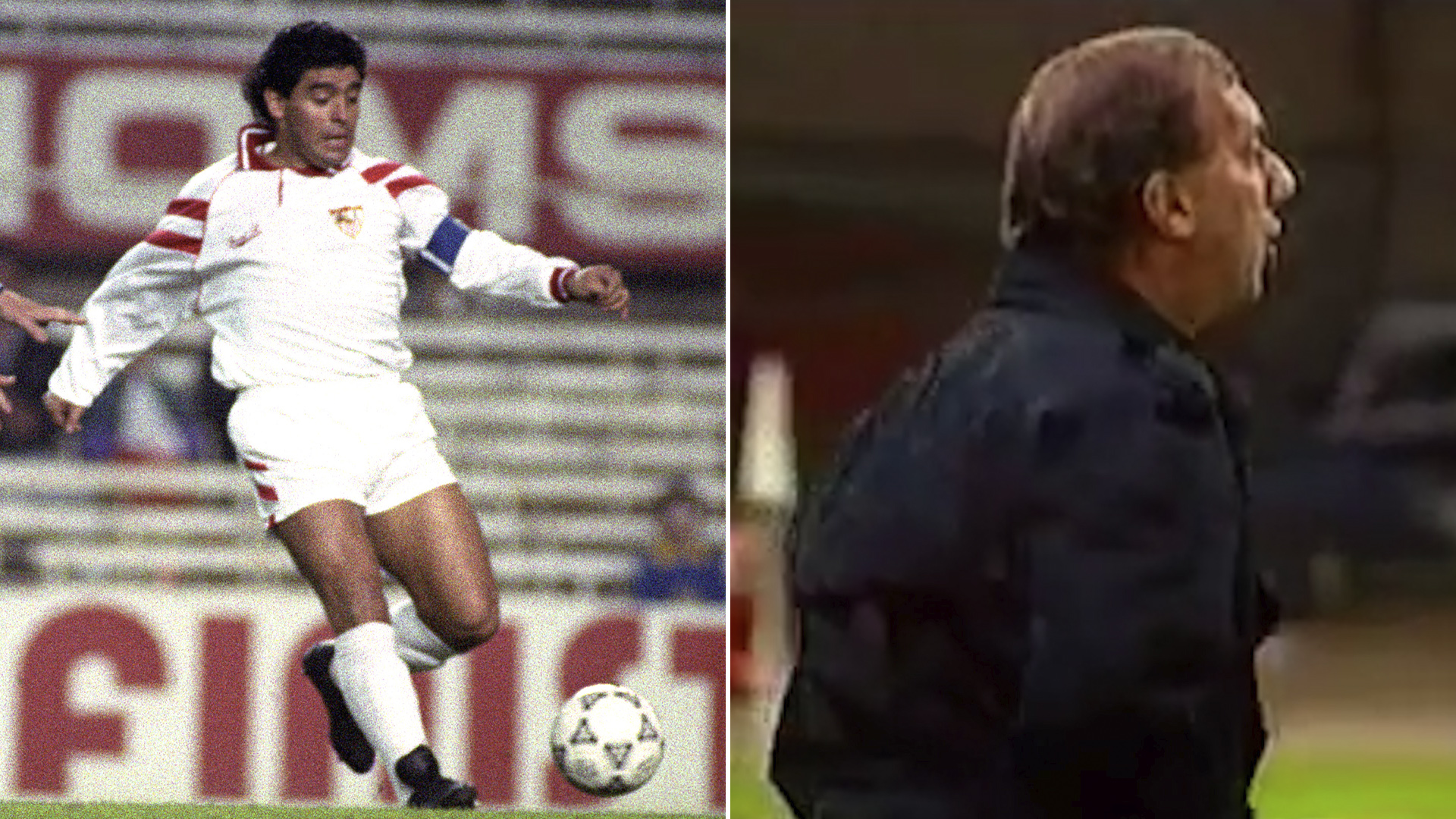
- What do you remember about your time at Sevilla with Diego Armando Maradona?
-A lot of things; and most of them good. I always valued Diego's big heart, his generosity and when I talk about him, I say it because he often explained his life related to football to us, but also outside of it.
- What do you most rescue from Pelusa?
-He told us about his personal life, which entails being number one in the world, his experiences in great detail. His final phrase was: “Let them know that I tell it because I am fond of them. I made a mistake and I don't want you to make it.” He did masterful things and personally I consider him to be a very good person. I don't justify the things he's done, but he was a good guy.
- Is it true that Diego had lost weight to play against Real Madrid at the beginning of 1993?
-Yes, it was spectacular. This happened in the last game we played before the 1992 Christmas celebration. As a result of the holidays, the tournament stopped for a week and he went to Sierra Nevada with his family. He stayed for seven days and when he came back, I saw him in the locker room and I said, 'Oysters, you're another Diego'. I had lost 8 kilos because I wanted to be in shape to face Real Madrid. He did it on a very complicated diet, eating semi-raw meat throughout the week.
It was run by Bilardo in that club. How would you define Carlos?
-Like a transgressor. Interestingly, four years before his arrival in Sevilla, he had the possibility of having as technical director Johan Cruyff, who maintained an idea of football that was opposite to that of Carlos; but just as transgressive. El Narigón taught us other facets and ideas of the game, concepts of football in general that we try to carry out.
- Did you have a close relationship with him, which allowed him to gain his trust?
Yes, we had a good relationship and I keep an anecdote with Carlos, which I was able to corroborate later when I was a coach. I remember a talk we had at the end of the season. He asked me: 'Juan Carlos, do you think I've been a good or bad coach? ' I wondered why I was the starting goalkeeper all season. I replied: 'What do you want Mister to answer him, he put me in every match and showed me his confidence. '
- What did he answer you?
- 'He doesn't go that way. Do you know Juan Carlos when will I know if I was a good coach or not for you? When you come to see them play next year, have another technical director with ideas possibly different from mine, and you will do on the court what I have conveyed to you. '
- How did you take it?
-When I was a coach I realized that is really what attracts attention. Let the players from day one to the last who start working feel that they are a little better than they were until the moment they met you. Bilardo was a great technical director and what he taught me, I tried to instill when I had to fulfill that role.
-Diego Simeone was also on that campus. Is Cholo today the Bilardo of its time?
-He's an outstanding student. His way of acting, of doing, even his way of playing is related to what Bilardo transmitted. Cholo also took advantage of other good coaches he had in his long career to learn from them. I am sure that in the end it is not Bilardo or Basile, it is the Cholo Simeone and it has its registered trademark. His teams convey what he was as a footballer.
-Later, he was the goalkeeper coach of Pep Guardiola at Barcelona. What is it like to work alongside one of the best technicians in the world?
-Pep is another offender close to Cruyff and Bilardo. In the idea of the game it is closer to that of the Dutch than to the Argentine. But he also had a great evolution in his career. I was lucky enough to be in Johan's first two years at Barcelona as a player; and then, I spent three of Pep's four years as a coach. I have seen that the basis is the same, but there is a great evolution to be a transgressor for 20 years. I feel privileged to have been able to agree with all of them. I have some more in my memory than others, which have taught me a lot.
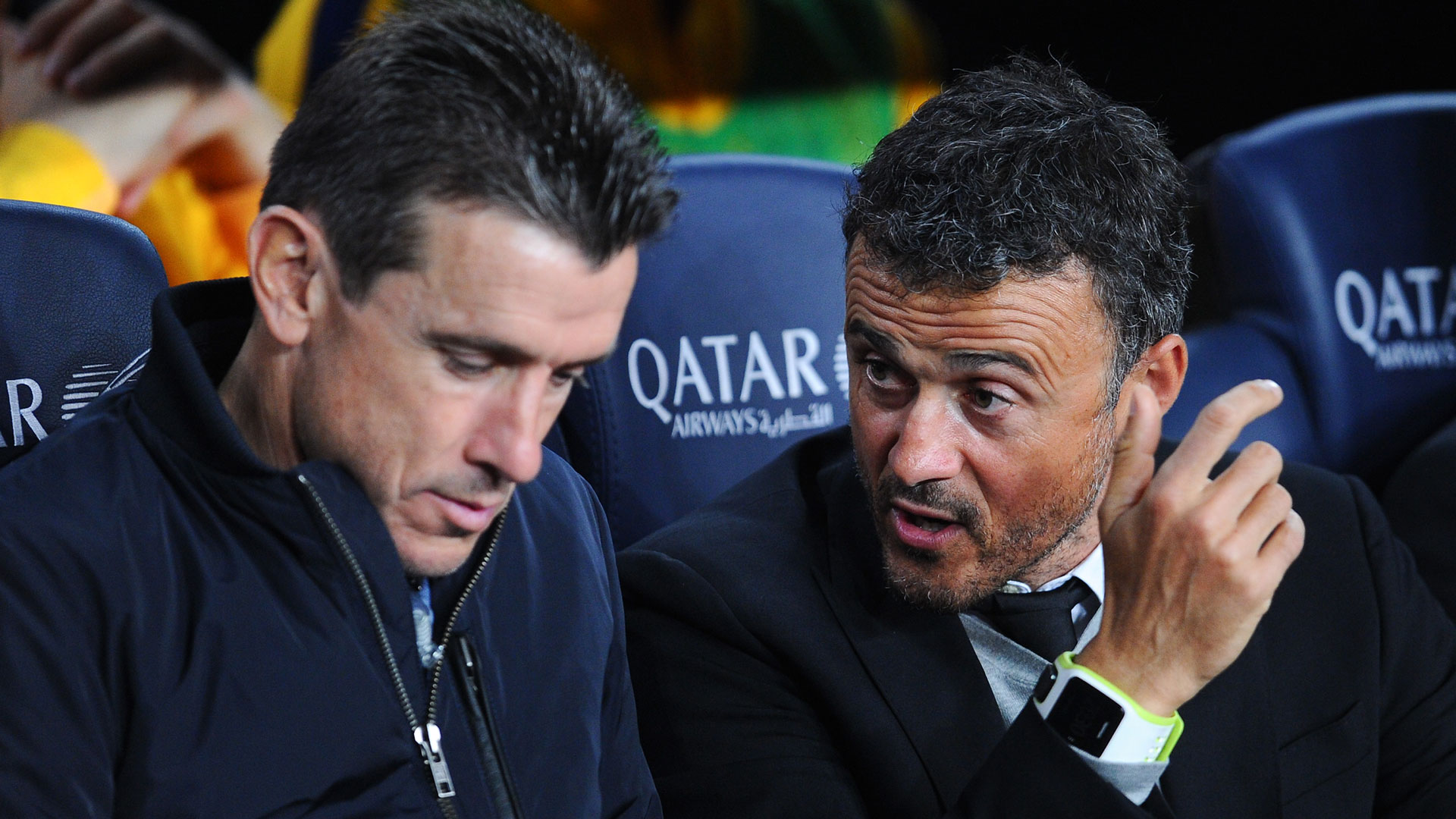
- Like Luis Enrique?
-Yes, that's right. Beyond the professional relationship with Luis, we are friends; and there is an unbreakable personal relationship to this day, that nothing is going to break it.
- Do you see him already settled as coach of the Spanish national team for Qatar 2022?
-First, he is in the place he wanted and wants to be; and that is important. Secondly, it is in the place that required great courage to carry out a replacement process. And manage the change of some of the players who had achieved everything with the Spanish national team in 2008, 2010, 2012. For anyone, managing that transition between those veterans and a new generation with quality young people, a lot of technical ability, but to be top players they need to do something with the national team and are on their way to it, it's not easy. There are spectacular teams in the world like Argentina, but Spain has once again excited about a fairly young team. I don't think I know if we'll win, but it'll be hard to break.
-He was the coach of archers of the coaching staff led by Frank Rijkaard in the culé team. How did they handle Lionel Messi's debut as a group?
-For me, Messi is the best player in the world. Leo was lucky enough that his first coach was Frank, because I can assure you that all he had were great, but the peace of mind that the Dutchman took to avoid burning him was fundamental. But not only with him, but also with Andrés Iniesta. Rijkaard was the coach who helped a lot to make them grow more progressively. He prioritized the growth of two spectacular players that he felt and saw every day in a progressive way; and prioritizing what he thought was best for his own careers.
- Was it Pep Guardiola who blew up the best Messi ever?
-Leo had a lot of respect for the hierarchies that at the time he came up he had Ronaldhino as the best player in the world. Then, when Messi arrived, he perceived who was ahead, instead on the court, and he respected him. But when the Brazilian left, the Rosarino felt it was time to take a step forward. I believe that Pep's play helped that hierarchy and all his abilities to be at the command of every minute to stand out in every match during the Spanish tournament. It helped his way of playing, but above all the ability of the Argentine.
- Was Guardiola's team the best of all those you made up?
-If we put it in terms of titles, no one managed to win that sextet. We were close with Luis Enrique, but we stayed at the door. As for titles, yes. But I think it's all a consequence of; and I think that both Pep and Luis Enrique got a lot out of the capabilities of their players. In the end, Guardiola's time was based on the moment Lio Messi was going through with 10 teammates who helped him to reflect his way of playing on the court. But when we had with Luis Enrique there were Neymar, Messi and Luis Suarez and he took advantage of the hierarchy of the three players to achieve results.
- Were there Messi's colleagues who were able to withstand the stress of working with him?
-Everyone. Teammates who have been by his side for a long time have been able to withstand the stress of playing with Messi. And it was difficult, because Leo has been very demanding of them, but much more so with himself. So, it wasn't easy to live up to her. In the end, football is a funnel and not everyone is up to the task of players like Lio. Some came to be by his side and were not able to consolidate, but there were others who succeeded. And we are living the best years in the history of the Barcelona club.
- How demanding was Maradona with his teammates?
-They were different in the way they were. Leo is more introverted, Diego more open. Both knew they had to take responsibility for commanding their teams. Football in the 80s, 90' has nothing to do with what is now. But if we had changed times, Diego developing in 2010, 2020 or Leo in the 80s, I'm sure they would also have been the best in the world. They have impressive technical conditions and a privileged mind. I found that in my experiences with both of them that it is very difficult to be the best in the world in this sport and to cope with that tension and pressure that they have been able to carry on their backs for a long time.
-For this reason, do you think it was very difficult to put yourself in Maradona's shoes at a time other than ours?
-Yes, of course. He himself knew that he had been wrong about several things and I don't agree with what he has done. But I don't judge him, because I've seen how hard it was to be Maradona. In general, society has a bad habit of prosecuting people without knowing them and we tend to make mistakes very easily.
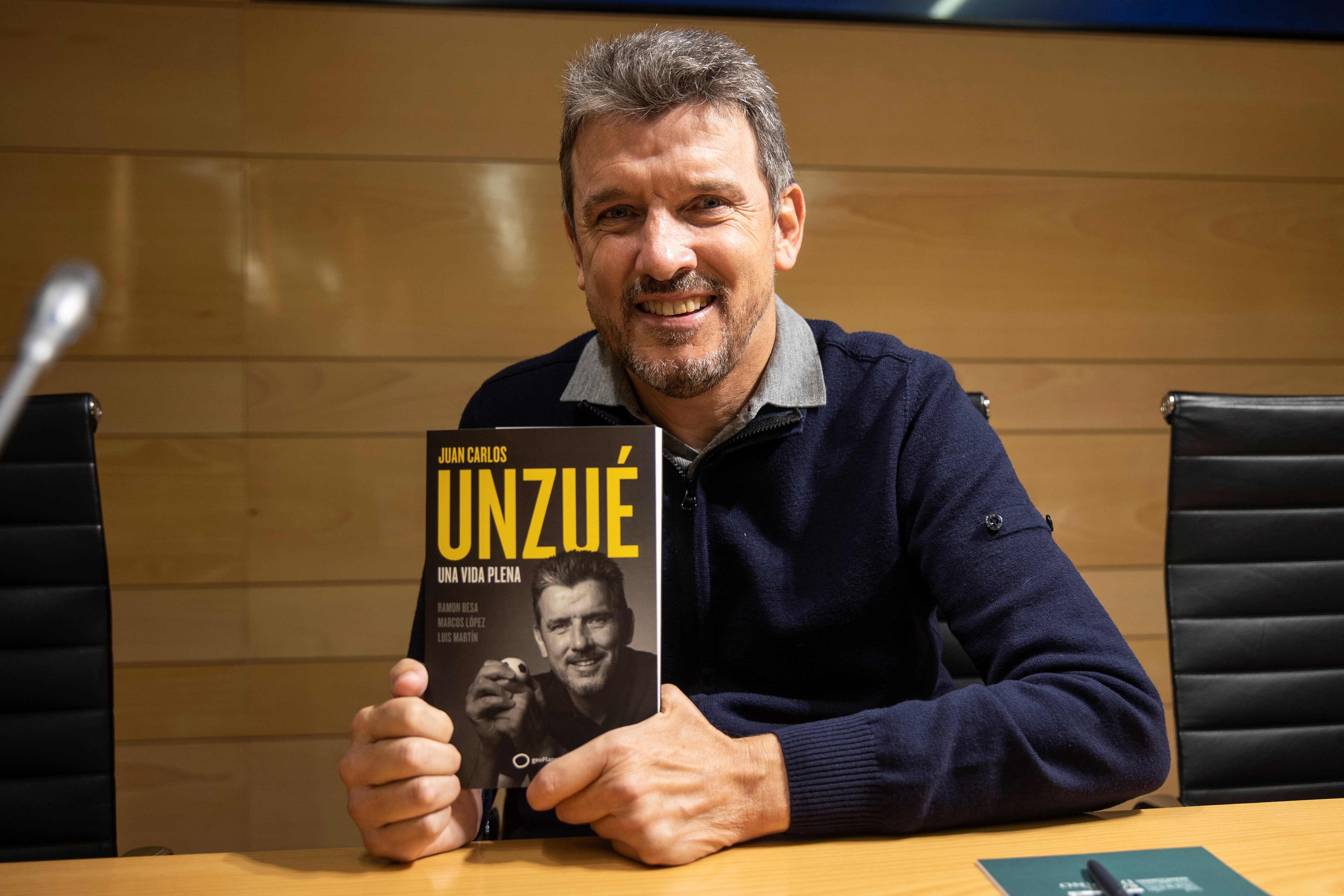
KEEP READING:
Últimas Noticias
Debanhi Escobar: they secured the motel where she was found lifeless in a cistern
Members of the Specialized Prosecutor's Office in Nuevo León secured the Nueva Castilla Motel as part of the investigations into the case

The oldest person in the world died at the age of 119
Kane Tanaka lived in Japan. She was born six months earlier than George Orwell, the same year that the Wright brothers first flew, and Marie Curie became the first woman to win a Nobel Prize

Macabre find in CDMX: they left a body bagged and tied in a taxi
The body was left in the back seats of the car. It was covered with black bags and tied with industrial tape
The eagles of America will face Manchester City in a duel of legends. Here are the details
The top Mexican football champion will play a match with Pep Guardiola's squad in the Lone Star Cup

Why is it good to bring dogs out to know the world when they are puppies
A so-called protection against the spread of diseases threatens the integral development of dogs




